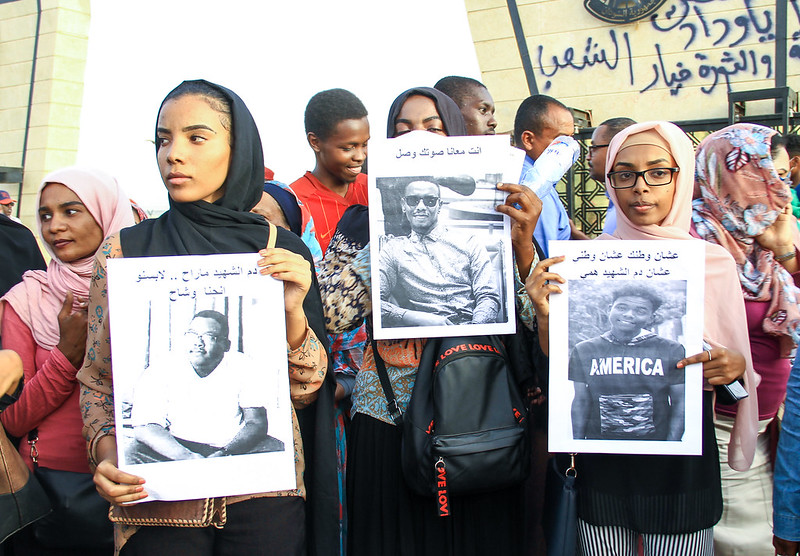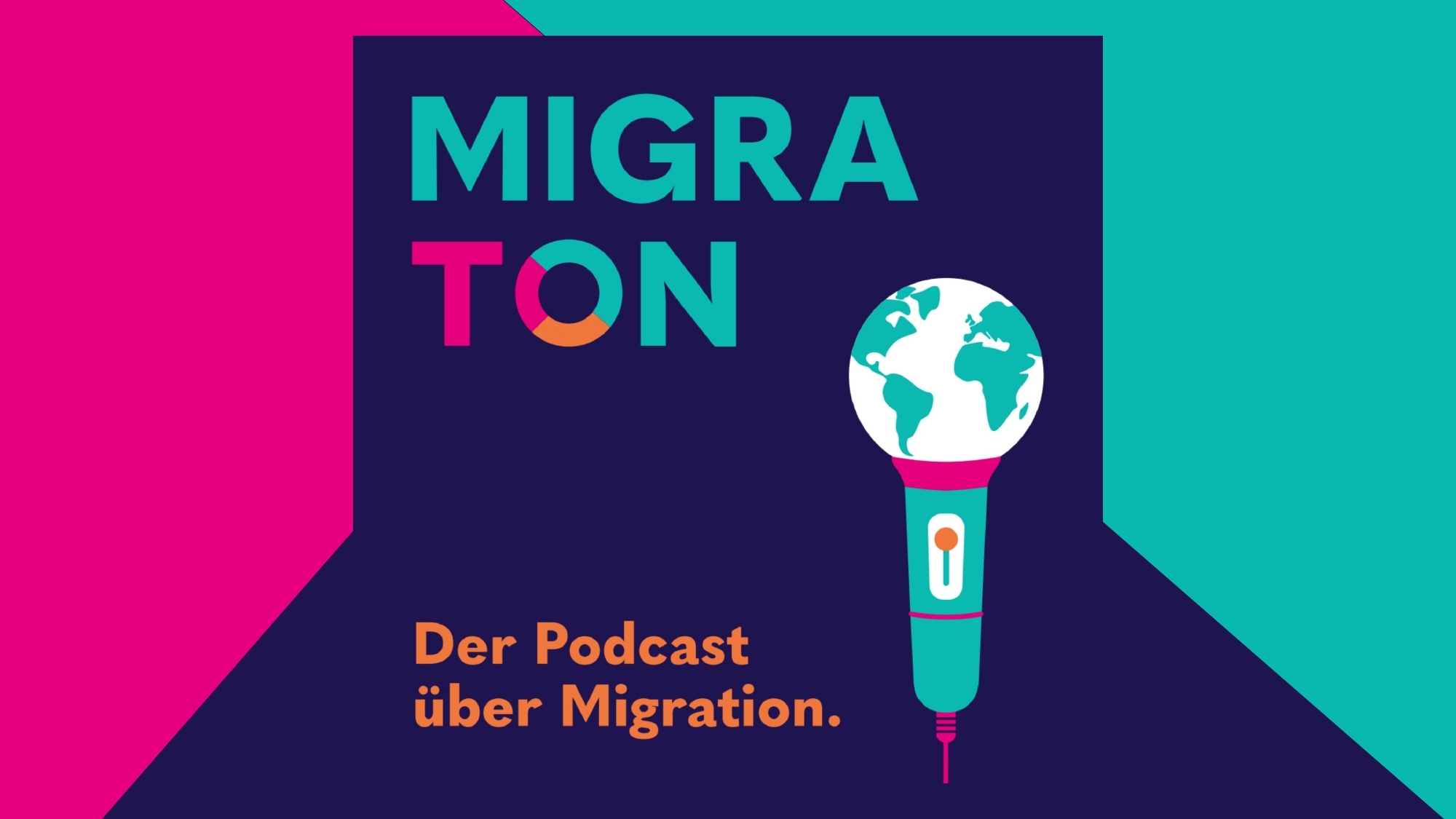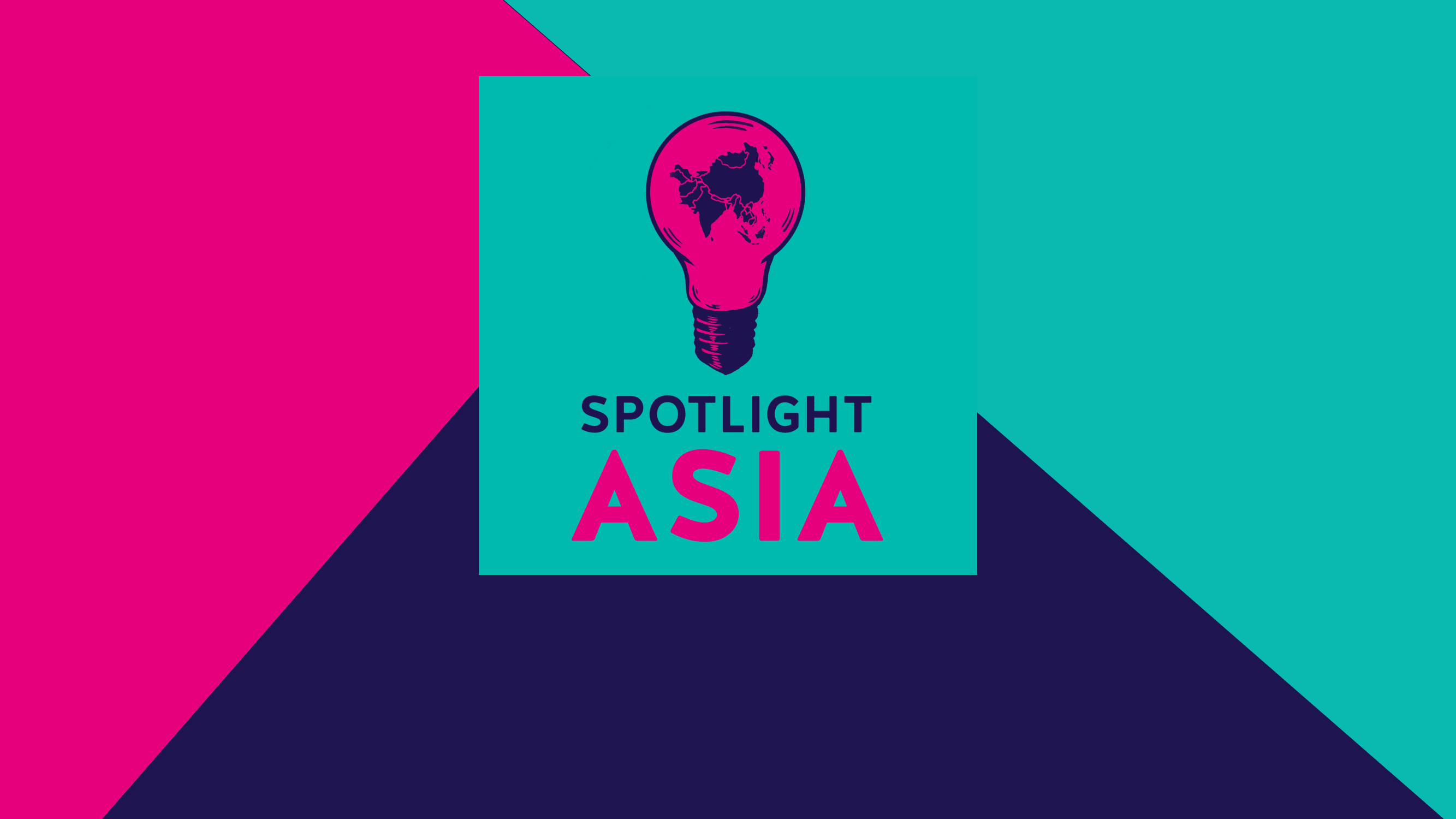15 JUL | Feminism(s) | Part VI: Black and African Feminisms – Sudanese Feminism(s)

Image „Sudan Revolution“(link is external) by Hind Mekki(link is external) is licensed under CC BY 2.0
Feminism(s) | Part VI: Black and African Feminisms – Sudanese Feminism(s)
An Introduction
WITH MAYADA ABDELAZIM
15th July, 7-8 pm
When, in the summer of 2019, the people of Sudan toppled their long-reigning president through a peaceful revolution, international observers were quick to point out that women had played a significant role in mass mobilisation, and the image of young revolutionary Alaa Salah sparked admiring reactions around the world.
Today, two years after the euphoria of Omar al-Bashir’s downfall, Sudanese women have quickly been moved out of the spotlight of international attention. The country is in a deep economic and political crisis, both of which are worsened by the ongoing COVID-19 pandemic. Meanwhile, the diverse demands of Sudanese women have more often than not been ignored, and their role in the revolution has not translated into adequate political representation.
The simple picture that international observers perceived in 2019 was, in reality, much more complex. The activism of women like Salah was not a spur-of-the-moment development, but followed a long tradition of Sudanese women of different backgrounds mobilising against dictatorial regimes. Moreover, pictures of upper-class young women in the nation’s capital conceal the importance of women’s mobilisation at the grassroots level, in marginalised areas of the country, and in historically excluded groups in galvanising the Sudanese people against the regime.
In our event on Sudanese Feminism(s), we want to discuss not only the situation of Sudanese women’s political activism in the revolution, but also shed light on the diversity of feminist mobilisation in Sudan. What distinctions can be drawn between the demands of women from different ages and regional, class, and religious backgrounds? Which historic (dis)continuities can we find? What conversations are led on the grassroots level that the international community fails to perceive and understand? And what would a feminist response to the country’s current crisis look like?
We are delighted to discuss these questions with Mayada Abdelazim.
Mayada Abdelazim has over seven years of experience in the nonprofit sector. She is a graduate of Economics with a major in Development from the University of Khartoum. She obtained her Masters in Development studies from The University of Medical Sciences and Technology and another from School of Oriental and African Studies. She is the co-founder of the SheLearns initiative, which has supported female education in Sudan since February 2012. Mayada has had in-depth experience in women’s rights in Sudan and the Horn of Africa, as a projects assistant at SIHA. She worked to enhance the capacity of women at the grassroots level, supporting them to organize themselves in cooperatives to improve their livelihood and gain access to rights. Mayada also worked with the International Committee of the Red Cross (ICRC) as a researcher on missing persons in Darfur. Mayada is interested in finding ways to link macroeconomic interventions and the development of local communities, by creating cost effective, pro-poor strategies.
This event is organized by Polis180’s program Gender and International Politics. It is part of our event series Feminism(s) that takes a look at feminist movements, ideas and actors around the world.
The event is intended to continue a multi-event conversation on Black and African Feminisms. In April, we organized an introductory event with Sheena Anderson and Wadzani Motsi-Khatai on the history, present and future of Black and African feminism and their relation to other global feminist movements. In the events, we (re)center Black and African feminist theories, battles, scholars, and activists and challenge mainstream understandings of what feminism means. African and Black feminisms are diverse and develop their concepts centering Black and African women’s experiences. To explore this diversity, we invite Black feminists in Africa, in the diaspora, and in Germany to join the conversation and share their feminist perspectives.
Buchungen sind für diese Veranstaltung geschlossen.

